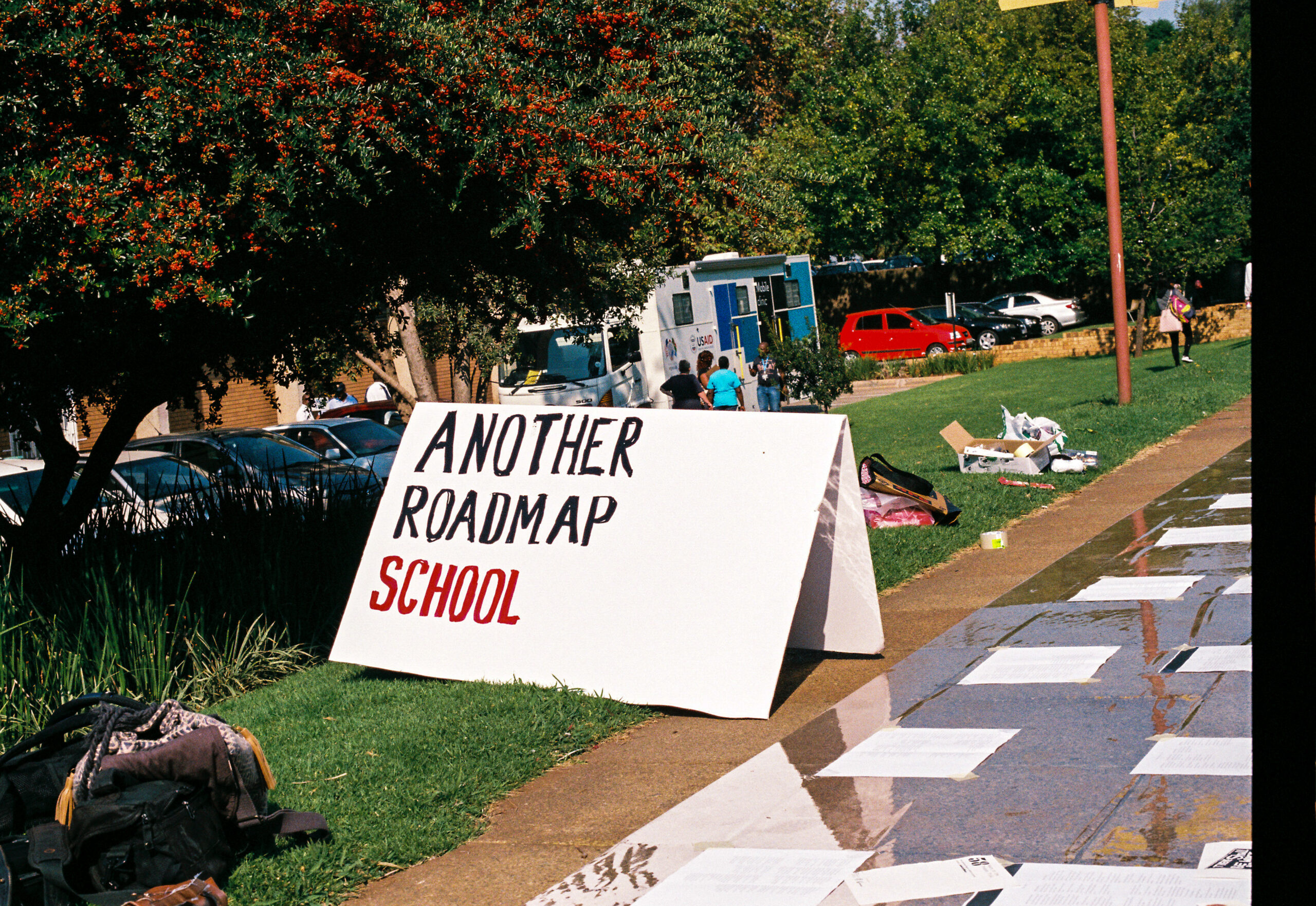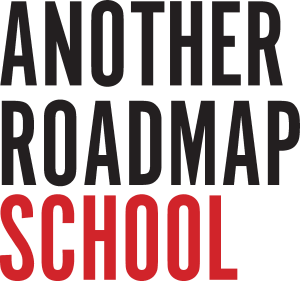The Another Roadmap Africa Cluster (ARAC) aims remain to: make a critical and timely contribution to the development of practice and policy in our field. To this end, the project strives to support the development of innovative arts and education projects at grassroots level while at the same time networking Africa-based scholars and practitioners, and enabling them to advance research and practice in arts education, share knowledge and nurture further practice and scholarship and contribute to an African and global discourse on arts education. These broad aims are being met at this interim across the different working groups. This report should be read with the ‘mother website’ of Another Roadmap for Arts Education,
Another Roadmap School
.
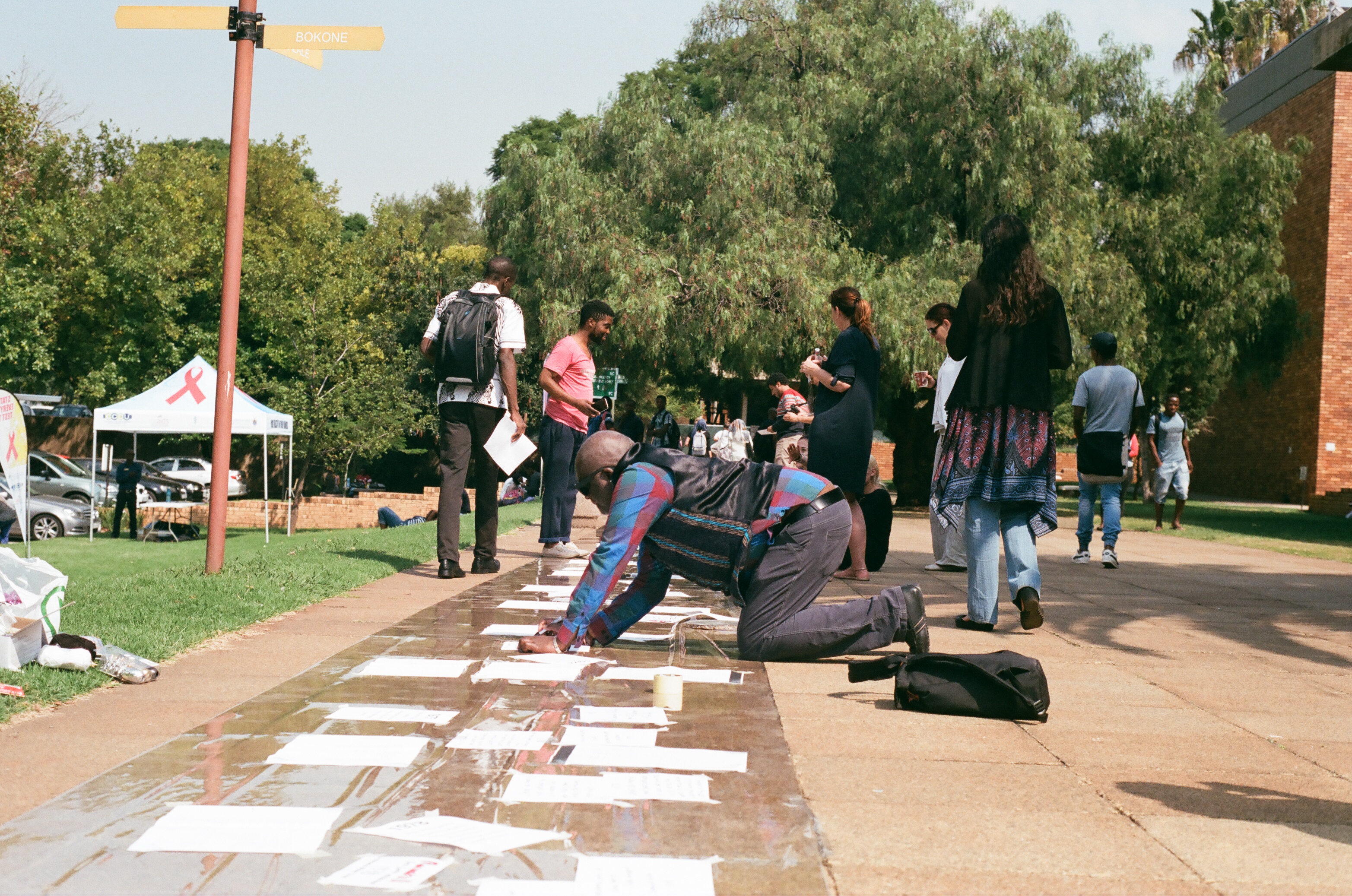
Background
Johannesburg
The Johannesburg is developing a framework that is generative – we are identifying the key presences in our research project, many of which are found in the practices of Medu Art Ensemble:
- Intergenerationality of research teams, debates, information gathering and decisions. This extends to the collective, ensemble-like methodologies present for the research;
- Dialogue/talks/conversation and re-enactment sessions;
- Decentralisation of learning sites;
- The potential for a “festival” format that authorises itself, has broader appeal and crosses disciplines;
- The centrality of grappling with language – and ideological languages;
- The working group has considered a set of tactics that might be described as both metaphorical and methodological, drawing from Eduoard Glissant’s understanding of histories as processes that highlight the following guiding metaphors:
- To exhaust
- To realise
- To endlessly discover
- To illuminate and then retreat
These presences and metaphors have enabled a working process that maps the research scope in generative ways. The working group is entering a dynamic phase in which students and a broader consistency may begin to interact with the research material and processes.
Lubumbashi
In Lubumbashi, we have organised a meeting every second month, we have had 3 meetings now. We have conducted the preliminary research and identify 4 axes of our work:
- Self writing and decolonising practices of arts education: Pierre Romain-Desfossés and le Hangar, Ecole d’art d’Elisabethville
- Highlighting informal / alternative education: Research on artists workshops in the 1980s and 1990s
- Rethinking the dichotomy elite vs popular: The question of “authencité”
- Art education as space for political and social emancipation: Knowledge production under Mobutu dictatorship
Maseru
Maseru Working group’s practice-based research seeks to study current teaching practices/methods in primary schools to identify plausible strategies to advance the level of language literacy that student and instructors alike have in the Sesotho and English subjects. In performing the research, the team will survey students and teachers, each with a different questionnaire, to evaluate the baseline environment and identify opportunities for improvement.
The research approach includes interviews ad data analysis and interpretation as practice. The multi-tired research thus aims to respond, in so doing:
- Evaluate curriculum to identify places where locally relevant examples could be incorporated;
- Consult with Another Roadmap partners about instruction best practices and applicable educational literature;
- Eventually share suggested curriculum with the Ministry of Education;
- Develop and offer exercises that will be used as a measuring device of change, both in approach and student achievements results garnered;
- Workshop with teachers from target schools on how to apply teaching methods not conventionally found in prescribed teaching resources
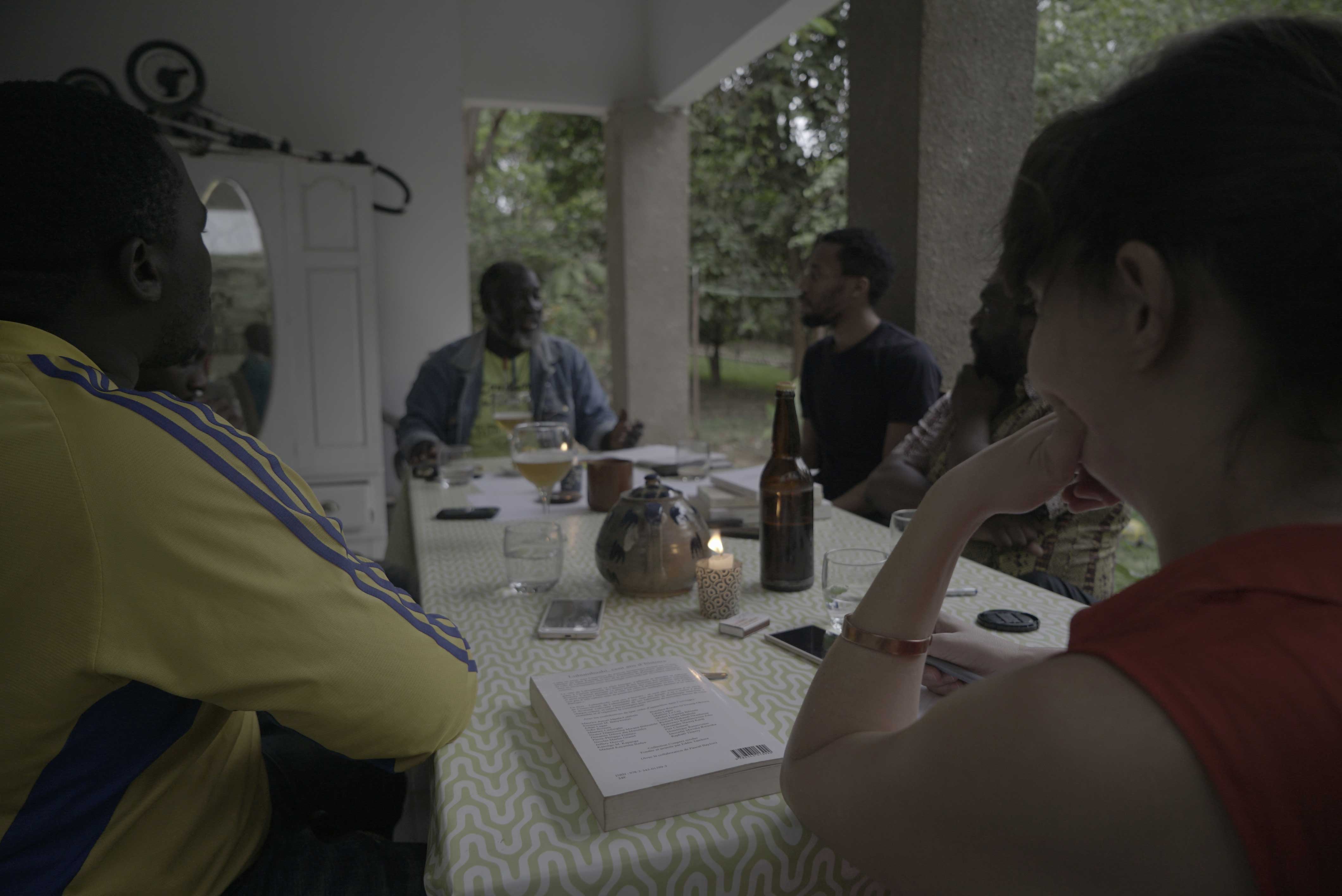
Success and/or Achievements of the Project
Johannesburg
The Johannesburg working group have had sparse but rich and rigorous working sessions. The first one was attended by Thembinkosi Goniwe (independent curator, writer and artist), Chepape Makgatho (artist), Molemo Moiloa (Director Visual Arts Network of South Africa), Sipho Mdanda (Freedom Park), Tracy Murinik (independent curator and writer), Rangoato Hlasane and David Andrew. The session emphasised the importance of methodology, particularly methods that contribute to a decolonial project. The Intertwining HiStories public project in which the Johannesburg working group ‘re-‐enacted’ the keynote address by Prof Keorapetse Kgositsile at the Medu Art Ensemble (Botswana, 1982) took place in October 2016 in the midst of the 2016 #FeesMustFall. It was an event that attracted not only Prof Kgositsile himself, but also people who were present in 1982 at the conference, and former Medu members. A strong representation of students and academics, as well as artists and activists found the event enriching and rare.
Lubumbashi
During this first phase, we have worked to develop mutual understanding and a common methodology among a very diverse group of participants. Going forward, we plan to expand the working group beyond Waza to incorporate academics from Lubumbashi University and teachers from fine art schools to enable us to better achieve our broader mission. We have had positive and in-depth contact with other working groups of Another Roadmap School – both in Africa and beyond.
Maseru
We have focused on developing insight into the factors affecting artistic education in our localities. We have received ground-breaking information that paves the way for further research and possibilities of reform based on best practices Lineo has been exposed to in the United States as a Humphrey Fellow. And we have been learning from one another by sharing our varied bodies of knowledge and practice. To be more precise Keleketla! and Ba re e ne re have a lot in common and it was agreed that it will serve both groups to collaborate on facilitating workshops and creating resources that can benefit all audiences involved, especially given the shared history and proximity.
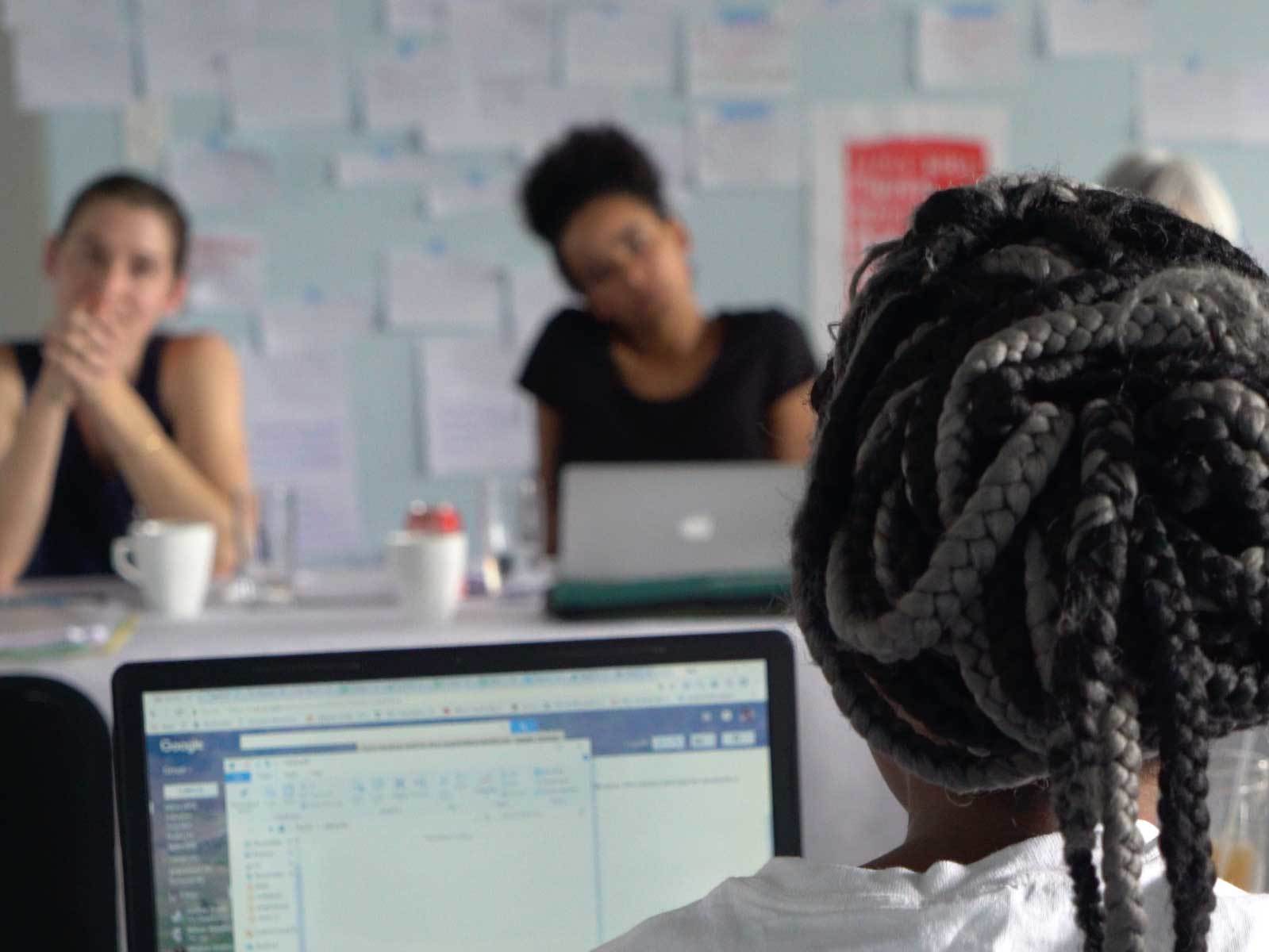
Challenges and Lessons Learnt
Johannesburg
Some difficulties: Foreign exchange and labour laws, as well as differing currencies affect the budget considerably. (For possible solutions, see “Interesting Info”, below.) Difficulty in securing regular meetings – there is a desire to grow the working group, especially streching to a wider local constituency. To this end, we plan to develop research ‘hubs’ in different parts of Johannesburg, in informal and formal education spaces. For example: the ‘unchronological timeline’ could be housed and developed in the Wozani Block studios of the Wits School of Education and the RISO duplicator for independent publishing at Keleketla! Library.
Lubumbashi
Difficulty to have regular meeting as some members are not permanently based in Lubumbashi (Johannesburg, Likasi, etc.). The working group is exploring practical solutions towards increased stability in phase two.
Maseru
Red-tape in relation to getting approval from school administrations and the government. Time restrictions and remote overseeing of projects. Visual documentation of activities due to school opting to monitor proceedings themselves.
